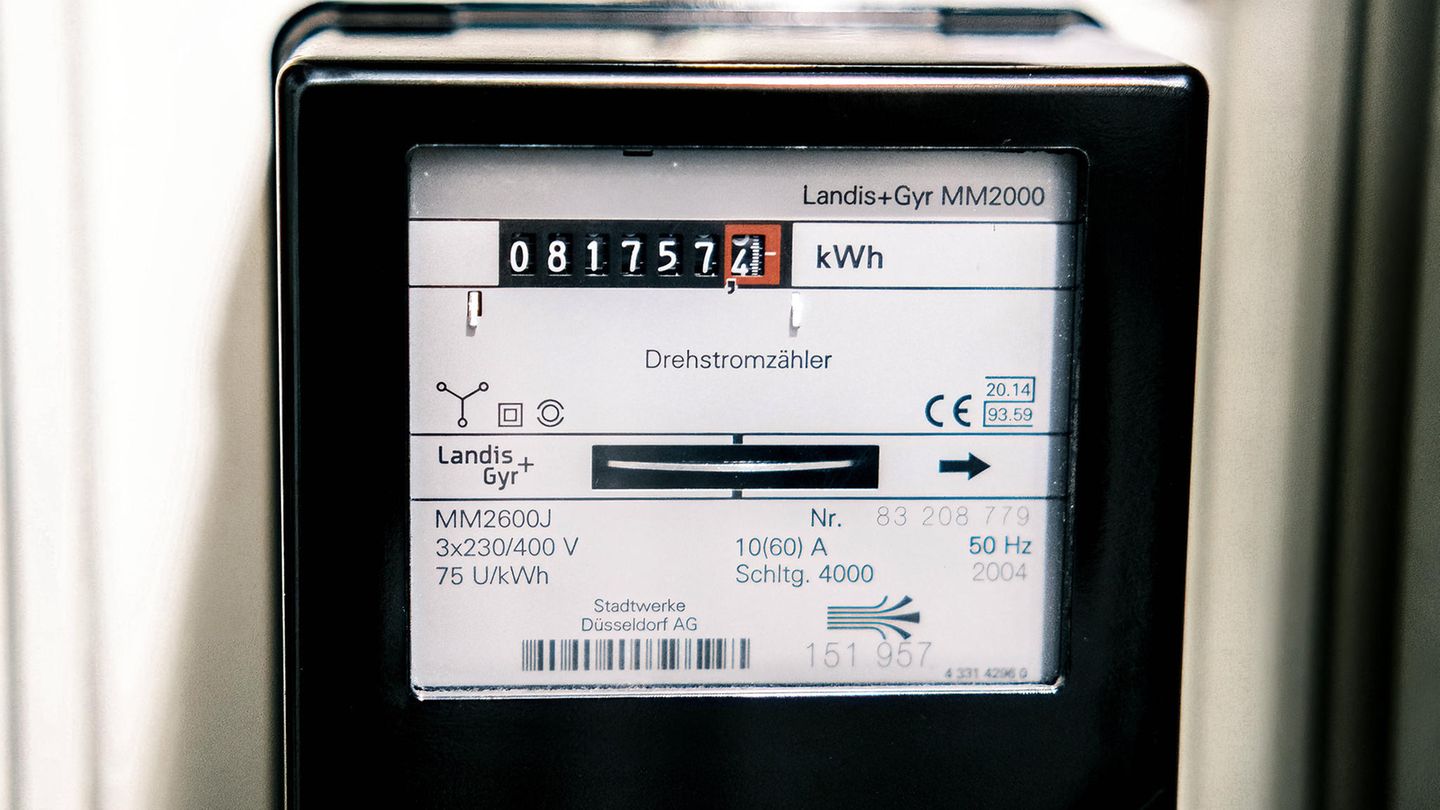There are again significantly cheaper contracts for electricity and gas. The savings can amount to several hundred euros, and consumer advocates recommend switching. Customers have to pay attention to this.
Since March, the price brakes for electricity and gas have contained the worst excesses of the increased energy costs. But anyone who now believes that because of the state price cap it doesn’t matter who you get the energy from is completely wrong. On the one hand, the price brake only covers a part, namely 80 percent of the previous year’s consumption. On the other hand, there are now many tariffs that are significantly cheaper than the price brake level.
Because energy prices on the stock exchange have fallen significantly since the beginning of the year. This allows many providers to woo new customers with cheaper prices. However, the falling prices have not yet reached many existing customers – most consumers are still paying the high prices from last year. Consumer advocates therefore have a clear recommendation for customers with expensive tariffs: “Switch out of your contract. Compared to last year, there are cheaper tariffs on the market again,” advises the North Rhine-Westphalia consumer advice center.
Switching can save hundreds of euros
The large comparison portals can also confirm this. According to a recent analysis by Verivox, the price differences between electricity and gas tariffs are “larger than ever before”. According to Verivox, a model household with an annual consumption of 4,000 kilowatt hours that switches from the local electricity supplier to a cheap offer for new customers can save up to 562 euros a year, even taking into account the price brake. If you calculate out the price brake, the savings would even be 760 euros.
According to Verivox, gas customers can save even more by switching to the cheapest provider with “recommended conditions”. Taking the price brake into account, the savings potential for a single-family house with an annual consumption of 20,000 kilowatt hours is 823 euros according to the portal, without the price brake it would even be 1391 euros.
The basic suppliers became more attractive last year because of their relative price stability, but now there are cheaper alternative providers again. “Local suppliers usually have a long-term procurement strategy. Many of the companies are still struggling with the record wholesale prices that were due in 2022,” says Verivox energy expert Thorsten Storck. According to Verivox, around 80 percent of the basic electricity supply tariffs currently have a kilowatt hour price that is above the cap of the electricity price brake of 40 cents per kilowatt hour. For gas, 90 percent of the basic supply tariffs are currently above the price cap of 12 cents per kilowatt hour.
Tips from the consumer center
The recommends customers willing to change to get an overview on comparison portals. However, consumers should note a few things.
- The consumer advocates advise deactivating default settings such as “high customer recommendation rate” or similar in order to display as many providers as possible and not just those from which the portal receives a large commission. In addition, only one tariff per provider should be displayed.
- However, bad customer ratings should be an alarm signal. A quick internet search is also worthwhile. There are indications of black sheep, for example, on the Trustpilot rating portal. If there have been judgments or warnings against the provider in the past, you can usually find something about it.
- When comparing prices, the consumer advice center advises not to include bonus payments, but to base them on the actual annual costs. “In the case of a tariff with a bonus, you should be prepared to switch again after a year, because the second year of the contract is usually more expensive in the bonus tariffs,” writes the consumer advice center.
- The consumer advocates recommend a contract period of one year in conjunction with a price guarantee. Some price guarantees are limited in that the increase in state levies and network charges can still be passed on. However, the price guarantee protects against rising energy costs.
- In principle, a special right of termination always applies in the event of a price increase. However, customers have to react promptly to do this. Consumers should therefore pay attention to the channel used for communication with the provider (not with the comparison portal) when concluding the contract. With online tariffs, everything usually goes via email.
Incidentally, it is not as cheap as it used to be, even in the current phase of relaxation. According to consumer advice centers, even the cheapest new electricity tariffs that can be concluded are still 20 percent more expensive than before the energy crisis. Gas prices are about twice as high.
Source: Stern




